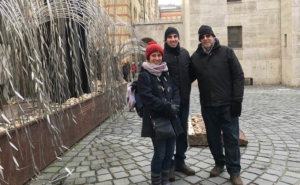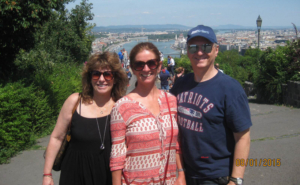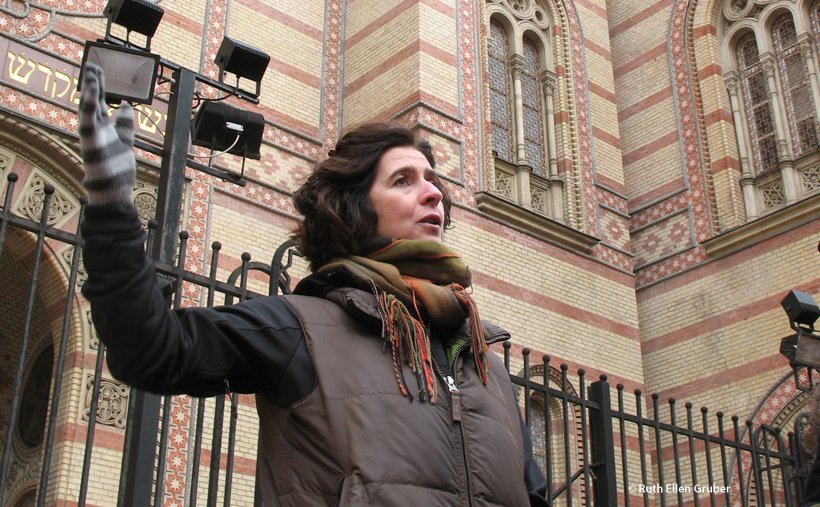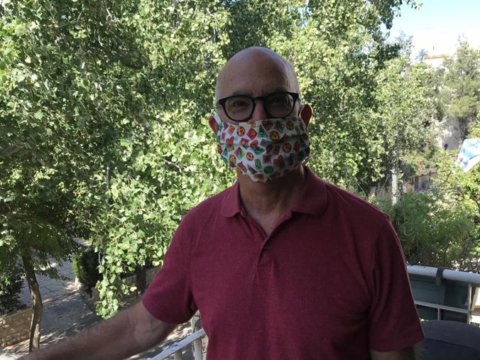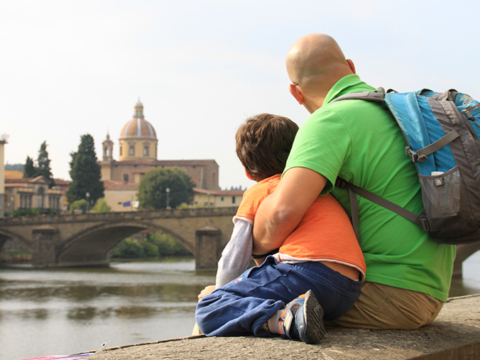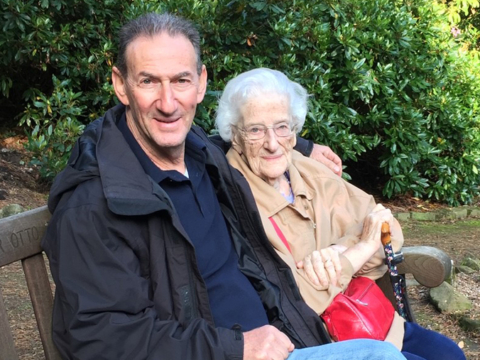“I am a Juif”
Today is Yom HaShoah (Holocaust Remembrance Day). In Israel and around the world, we remember those murdered in the Shoah. In Budapest, there will be poignant and powerful ceremonies for the approximately 565,000 Hungarian Jews killed during the war. Agi, whose grandmother perished in Auschwitz, explains that “nearly all Jews born in Hungary are survivors or descendants of survivors. The Holocaust is in our blood. It’s impossible to avoid.”
But Yom HaShoah in Budapest is a time of solidarity as well as sorrow, when the rejuvenation of the city’s Jewish community, one of the largest in Europe, can be seen and felt. Last year, 30,000 people gathered to march, mourn and connect. More Budapest Jews attend Yom HaShoah events than High Holiday services. “The Jewish community in Budapest is broken into thousands of pieces,” says Agi, “but on Yom HaShoah many Jews not usually involved in the community, plus people from all the different Jewish organizations come together.” Many non-Jews also attend. “My non-Jewish friends see it as an act of solidarity. That solidarity has always been one element of the Jewish experience in Hungary. Many survivors were hidden by non-Jews. My uncle escaped thanks to Raoul Wallenberg.”
Agi, a Da’at educator and tour guide, is passionate about sharing with visitors both the scale of the Jewish achievement in Hungary and the extent of the tragedy. It is, for her, a very personal story. She grew up under Communism, when being Jewish and the Holocaust were rarely talked about. Her parents, like many of their generation, channeled their Jewishness into cultural interests. “Only years later did I realize that all the people my parents went to concerts with were Jewish.” When Agi was 19, she received a visa to visit her uncle in France. “I walked into a store in the Jewish quarter in Paris and said I was a ‘Juif,’ a Jew. That was it, the moment I re-discovered my Jewish self.”*
Jewish life in Budapest came out of the shadows with the coming of democracy in 1990. For Agi, this new freedom has included studying In Israel, embracing the Jewish film and book festivals that are flourishing in Budapest, and finding a Judaism that does not revolve around “sad old men sitting in empty synagogues.” A special moment was when she celebrated her bat mitzvah at the same time as her son was being made bar mitzvah. “We both learned our Torah readings through telephone calls to America.” Agi is also involved in protests against the increasingly authoritarian Hungarian government. “To be Jewish is to stand up, to stand up for democracy.”
If there is such a thing as a born tour guide, Agi is it. Her father met her mother when she was late for a tour he was guiding. Agi began her career on horseback, escorting local tourists on the spectacular trails around Budapest. She now works with many American Jewish visitors. “People often come in search of their roots and associate Budapest only with the Holocaust. But when they arrive, they’re shocked by its beauty. They see that there is life here. I love to show how Jews and Budapest are intertwined. You can’t understand the richness of Budapest and its culture without understanding the Jewish contribution. We’re part of the city and it’s part of us.”
*Or Juive (feminine for a Jew)
(Cover photography: Ruth Ellen Gruber)
